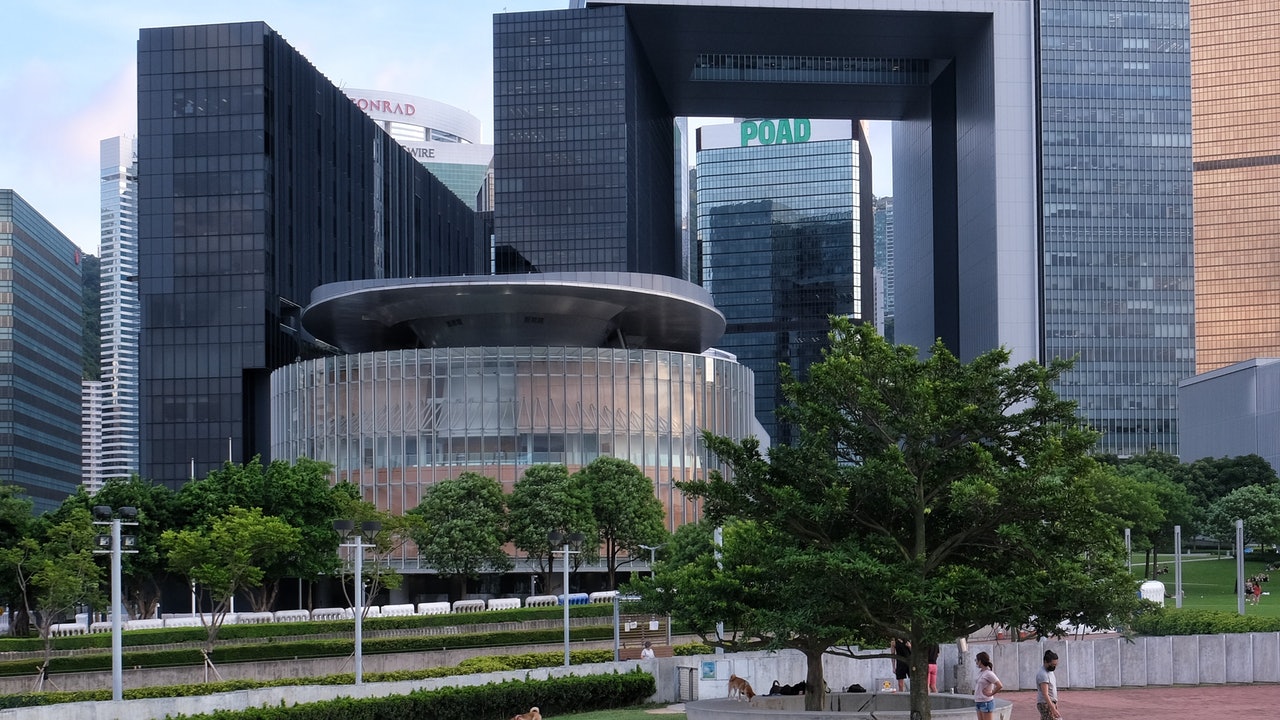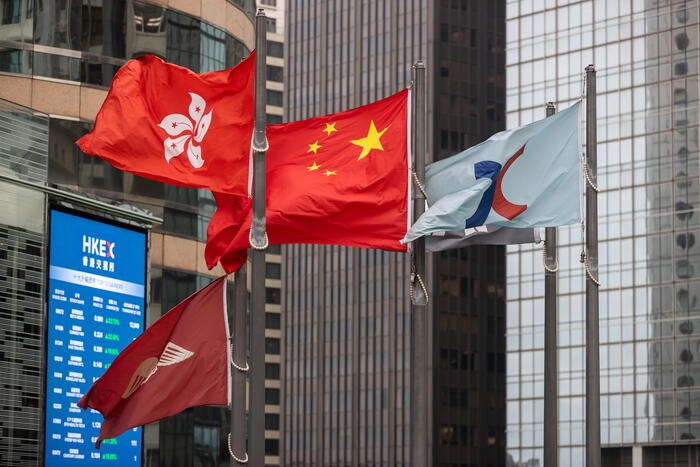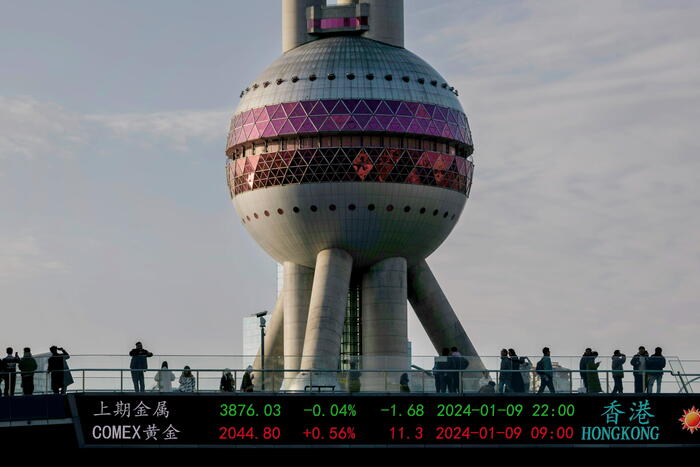Twenty-five years after the handover, the new SAR government is about to start.
In his campaign platform, he emphasized "strengthening the government's governance capabilities, and uniting to help the people relieve their difficulties". In the future, he will "government with results as the goal" to bring citizens a government that "can do things and achieve things", and comprehensively enhance the competitiveness of Hong Kong, laying a solid foundation for A solid foundation for Hong Kong's development.
This has indeed brought a refreshing feeling to the public and new hope for future development. The author believes that in order to open a new chapter in Hong Kong, it must be reformed and more open.
Under the current haze of the epidemic and the complex international situation, Hong Kong must first face the epidemic prevention and control and post-epidemic reconstruction.
But even if it returns to the situation before the amendment and the epidemic, can Hong Kong sit back and relax?
Will the "deep-level contradictions" and weak development that have plagued us for a long time after the return will disappear?
There are many internal problems in Hong Kong that continue to hinder the stability and development of the economy, society and I&T industries.
Facing the fact that the neighboring regions are making great strides forward, if Hong Kong does not want its status as an international financial center and a leading city to fade, it must no longer be as complacent as it used to be, nor can it rely solely on the central government to "send gifts".
In the future, Hong Kong must find a new role and a new position, so as to promote Hong Kong to truly start anew.
Overcoming obstruction by vested interest groups
From the high-speed rail incident, to the development of the Northeast New Territories, to the turmoil of the amendment bill, it can be seen that the existing consultation structure and public participation model of the SAR government have reached the point where they must be changed.
Compared with the continuous reform in the Mainland, Hong Kong really lacks the spirit of reform.
To trace the origin, it is not only because the SAR government has not made up its mind to eliminate the shortcomings of the system, but also the society has not been able to build a consensus on reform, and relevant interest groups have even more obstructed the reform. Development cannot move forward.
So, how to promote reform in Hong Kong?
The author believes that it is necessary to promote innovation through openness, and force reform through innovation.
Today’s world is an open world. To promote Hong Kong’s opening to the outside world is to seek cooperation in new markets, technologies, capital and management from around the world. By introducing new elements and combining with Hong Kong’s existing resources, it will bring new driving forces. , breaking the old order.
Moreover, for Hong Kong, opening up and reforms are nothing new.
In the 1970s, then-Hong Kong Governor MacLehose implemented a series of opening-up policies.
On the one hand, MacLehose opened up the financial industry and industry to the international community, including the removal of foreign exchange controls, gold transaction controls, the abolition of the cessation of the provision of licenses to foreign banks since 1965, the cancellation of foreign currency deposit interest withholding tax, and the reduction of Hong Kong dollars. Withholding tax on deposit interest and other measures to ease the opening of foreign banks in Hong Kong, in order to attract US-funded and British-funded financial institutions to invest in Hong Kong.
In order to improve Hong Kong's industrial technology level, MacLehose also established an Industrial Investment Promotion Committee to attract foreign investment to Hong Kong's industries.
Lesser mentioned is that MacLehose also attached great importance to opening up to mainland China. He was invited to visit Beijing and other places in 1979 and became the first Hong Kong Governor to visit China in an official style after World War II, which improved the relationship between Hong Kong and mainland China. , and promote further exchanges and cooperation between the two places.
MacLehose opened up to the outside world and carried out drastic reforms internally.
What is most memorable to the outside world is the implementation of the ten-year housing plan, the development of new towns, the establishment of the Independent Commission Against Corruption, the implementation of nine years of free education, the establishment of country parks, and the construction of underground railways and other important reform measures during his tenure.
MacLehose's opening and reform measures did not attract "sharks", but "catfish" and produced a "catfish effect". Through internal and external innovations and reforms, Hong Kong became the "Four Asian Tigers". One, laying an important foundation for Hong Kong's prosperity and stability and its future development into an international financial center and an international metropolis.
The new SAR government is about to start. The Chief Executive-designate, Mr. Lee Ka-chiu, proposed to "open a new chapter for Hong Kong at the same time", and emphasized that the future policy will "target results" and bring people who "will do things and achieve things" to the public. government.
Jumping out of the international vision of "Europeanization"
The author believes that the new SAR government, with the support of the Central Government and the new Legislative Council, can definitely do better than MacLehose.
Hong Kong should further open up to the international community, as well as to mainland China, and to talents at the same time, and to strengthen an open mind and build an open consensus within Hong Kong. Reform the bottle neck and push Hong Kong to start again.
First, in terms of further opening up to the international community, Hong Kong should further open up to countries and regions along the "Belt and Road".
In the past, as an international city, Hong Kong's internationalization was actually "Europeanization". Most Hong Kong people's understanding of the world was only concentrated in Europe, the United States, Japan and a few countries in the Middle East, and only a few countries in the above-mentioned countries could affect the stock market. , The foreign exchange market fluctuations are very interesting, and they are not interested in comprehensively and deeply going into various fields such as economy, culture, society and tradition.
Hong Kong people are often uninterested in other countries and fail to capture the rapid changes in many countries along the “Belt and Road”, causing Hong Kong to lose many development opportunities.
At present, with the profound adjustment of the world economy, the rise of protectionism and unilateralism, the economic globalization has encountered setbacks, and the global economic and trade order will face major changes. Coupled with the deteriorating Sino-US relations, if Hong Kong continues to focus only on "Europeanization", its advantages will turn into a disadvantage.
In this regard, Hong Kong can turn more attention to international organizations and countries along the “Belt and Road” to tap new opportunities.
In addition to joining RCEP as soon as possible and strengthening cooperation with ASEAN countries in the fields of economy, trade, culture and education, it can also serve as a major platform and springboard for Japanese and Korean companies to enter the Greater Bay Area.
At the same time, Hong Kong should change its entry-exit policy, and actively open up multiple visas to RCEP countries. They are welcome to come to Hong Kong for business, investment, study and enter the mainland through Hong Kong.
Expanding opening to mainland professions
Second, in terms of further opening up to the Chinese mainland, Hong Kong should open up more professional industries such as medical care and education to the mainland.
China's economy is developing rapidly, and the development of many industries has reached or exceeded the international standard.
Although Hong Kong's economy is closely related to mainland enterprises and the market, at the same time, the local industry's resistance to the mainland and its closed mentality are also extremely strong, and to some extent, it has even affected its own development.
Take the medical industry as an example. During the outbreak of the new crown epidemic, mainland medical and nursing staff could have been more supportive to Hong Kong, but they were regarded as a beast by the local medical community. The cheap testing resources and reagents in the mainland were once strongly resisted by different interest groups, and even slandered.
When the fifth wave of the epidemic was severe, under the authorization of the emergency law, a group of medical and nursing teams sent from the mainland were accepted, and these medical and nursing teams have made great contributions to the prevention and control of the epidemic in Hong Kong.
In fact, Chinese medical staff have provided emergency assistance to more than 100 countries and international organizations such as the WHO and the African Union, and their medical standards have been widely recognized by the international community.
The mainland's reagents have already been proven effective in huge samples of hundreds of millions of people.
Moreover, hundreds of thousands of Hong Kong people who work and live in the Mainland have also become accustomed to receiving medical services in the Mainland.
The author is gratified that, after the enactment of the Medical Registration (Amendment) Ordinance 2021, non-locally trained doctors with recognized medical qualifications can apply for a special registration channel to come to Hong Kong if they meet the relevant conditions, and work in public medical institutions (i.e. hospital management). The Hospital Authority (HA), the Department of Health, the University of Hong Kong and the Chinese University of Hong Kong) work as doctors and are formally registered to practice medicine in Hong Kong after serving a certain period of time, obtaining a recognised specialist qualification and passing an assessment.
This is an improvement, but the 27 universities announced in the first batch are all universities in Western countries. Only Shanghai Fudan University was selected until the second batch, but the selected courses are also mainly for training international students.
Moreover, the plan is not ideal for only Hong Kong permanent residents to train in other places.
Think about it, how many resources does it take to train a doctor?
If there are mainland or even foreign residents willing to come to Hong Kong to become doctors, it is a contribution to Hong Kong. Doctors should be included in the Talents and Talents Program so that Hong Kong citizens can enjoy the number of doctors per thousand people matching the city.
The significance of opening up the education industry is even more profound.
Last year, at the National People's Congress, the author put forward the "Proposal to Seek Mainland Institutions to Establish Primary and Secondary Schools in Hong Kong", which has received positive feedback from the central government and the SAR government.
In order to introduce secondary schools with a Mainland education system, it is necessary to introduce educational institutions and talents from the Mainland to run schools and teach in Hong Kong.
This year, the author puts forward the "Suggestion on Encouraging Top National Universities to Establish Campuses in Hong Kong". In the early stage, graduate schools and research institutes can be centrally established, or they can be combined with the Greater Bay Area campuses of relevant universities, so that students can study in the two places. Take credits.
At the same time, it is recommended that the SAR government relax the upper limit of the restrictions on overseas undergraduate students for private universities, and encourage universities to recruit students from ASEAN and countries along the Belt and Road.
As an international financial center, the Hong Kong government not only lacks policies to attract talents, but even if it launches "professional talents" and "excellent talents" programs to attract global talents, the threshold is actually very high.
Recruit global talents to pursue the "Hong Kong Dream"
Third, the Hong Kong SAR government should increase the policy of opening up to talents.
For a long time, as an international financial center, the Hong Kong government not only lacks policies to attract talents, but even has many "anti-talent" policies.
The early immigration regulations of the SAR government were based on the premise of not affecting local employment, so as to make things difficult for talents who came to Hong Kong to work as much as possible.
Although the SAR government has gradually improved these "anti-talent" policies and launched "professional talents" and "excellent talents" programs to attract global talents, the threshold is actually very high.
It was not until 2018 that the "Talent List" proposed by the Hong Kong Special Administrative Region Government proposed for the first time that in some areas of specialization in short supply, it is possible to obtain employment from local employers in Hong Kong without having to settle in Hong Kong, but there are only 1,000 places available each year. for application.
In contrast, the United States, before President Trump took office, issued 85,000 H-1B visas every year for global talents to apply for.
Among them, 20,000 visas are for talents with a master's degree or above, and the rest only need to hold an undergraduate degree.
In fact, to develop the economy and innovative industries, doctoral and post-doctoral talents alone are not enough, and a large number of undergraduate and master's degree talents from around the world are also needed.
Most countries and regions in the world, no matter how big or small, basically have their talent pools from their citizens, but the U.S. talent policy can recruit all kinds of outstanding talents from the 6 billion people in the world for their use, thus developing into the world’s No. 1 talent pool. A major economic and technological power.
There are also such excellent cases in Europe. At the junction of Denmark and Sweden, in the "Oresund Region" connected by the Oresund Bridge, there are 9 universities from both sides of the strait, 165,000 students and 12,000 researchers here. Established contacts and cooperation.
A large number of research projects can be carried out across regional boundaries, with lower costs and richer human resources. Not only has Sweden gained new direct access to other continental European countries, Denmark's Copenhagen Airport, as the busiest international airport in the Nordic countries, is also an Traveling in the "Ore area" provides a more convenient choice.
The people of Copenhagen have access to cheaper resources, especially more spacious and comfortable housing, in the neighboring city of Malmo.
These conditions and atmospheres have further developed the scientific research cooperation between Denmark and Sweden, and have promoted the development of the "Ores region" into a scientific research center in northern Europe, attracting a large number of high-tech projects from Europe. Sub-equipment, European spallation neutron source site selection in Lund, Sweden, etc.
The Guangdong-Hong Kong-Macao Greater Bay Area can learn from Denmark and Sweden to develop their respective economic and technological experience by attracting talents.
Hong Kong should actively attract outstanding talents from cities in the Greater Bay Area, as a force to promote Hong Kong's economic development and technological progress. This move will not only facilitate the exchanges of people and logistics, but also promote the economic and technological development of the Guangdong-Hong Kong-Macao Greater Bay Area.
The author suggests that the SAR government should re-examine the entry policy of Hong Kong, and refer to the entry policies of the US J-1 short-term exchange visa, H-1B visa for professional and technical work visa, and L visa for senior executives of enterprises. Senior executives of technology companies in Guangdong cities in the Greater Bay Area, experts and scholars from scientific research institutions, and professionals with undergraduate degrees or above from world-renowned universities (some talents in short-term professional fields in the "Talent List") can travel to Hong Kong for a short term Even long-term work allows more talents to create the "Hong Kong Dream" and gradually eliminate the "chicken and egg" problem that has plagued Hong Kong's innovation and technology industry and talents for a long time.
Governance team must have the courage to "trial and error"
Fourth, Hong Kong SAR government officials need to have a more open and innovative mindset.
On the one hand, SAR government officials need to give up their sense of complacency in the system and embrace the changes brought about by the new era with a more open mind.
In the past, many SAR government officials adhered to the policy of "small government, big market", often talking about "effectiveness".
However, being effective does not mean that it is the best, nor does it mean that it cannot be improved.
As American producer David Stutman put it, "Complacency is the enemy of progress".
Although Hong Kong has long been ahead of mainland China in the economic and financial fields, officials of the SAR government and even many Hong Kong citizens are full of superiority. Even if there are social and economic problems in Hong Kong, they still blame the drastic changes in the international situation and external suppression. factors”, rarely reflect on their own reasons, and missed many opportunities for reform.
Taking the information technology industry as an example, Hong Kong was a pioneer in e-government and services in the world as early as the first boom in the millennium, whether it was Octopus, smart ID cards, or real-time gross settlement system (RTGS), As well as electronic transaction legislation, are ahead of Asia and the world.
But today, 20 years later, not only has there been no innovation, but even the electronic transaction regulations have not been updated since 2004, which is far from keeping pace with the development of the times.
Looking at other regions, especially mainland China, they are taking advantage of the latecomer advantage to "overtake in corners". Today, they are more than a generation ahead of Hong Kong in legislation, payment and e-government services.
For another example, the author once served as a high-level IT supplier for the SAR government, and found that the SAR government often asked for the "Proven system" in the tender.
Proven System refers to a mature system. Once it is mature, how can innovation come? Of course, from the perspective of risk, it is understandable that SAR government officials require a mature system, but the consequence is to stifle innovation, especially the participation of local innovative enterprises.
I know a British friend in Hong Kong who developed a smart security system suitable for government and banks in Hong Kong more than ten years ago, but he could not find any government and public organizations in Hong Kong willing to use it for free.
He then went to the United States and sold the system to a bank in the United States. After a successful case, the Hong Kong government and the market bought products from him.
This conservative mentality of "emphasizing risk and ignoring innovation" exists not only in the SAR government, but also in various regulators, public institutions and most large local enterprises.
On the one hand, it was smooth sailing in the past, and people were generally reluctant to take risks and innovate.
If you make a mistake and never turn around, no one wants to "trial and error".
This unwillingness to "trial and error" has kept Hong Kong behind for a long time on the road to innovation.
I believe that in order to change the status quo, the SAR government needs to cultivate an open mind to embrace innovation, and officials need to have more innovative thinking, dare to act, dare to do, and dare to try, in order to make new breakthroughs.
Citizens and all walks of life should also have a greater "error tolerance" mentality and support the SAR government's "trial and error".
If MacLehose’s reform and opening up was a stumbling block, then Hong Kong’s reform and opening up is now a thorny road, especially through opening up to force reform, just like a ship reaching the middle stream and people in the middle of the mountain, if you don’t advance, you will retreat. Risks and challenges cannot be avoided or circumvented.
However, as the saying goes, rivers are for crossing, and mountains are for climbing. If the officials of the SAR government and people from all walks of life in Hong Kong can keep an open mind of "the mountains and rivers have passed, they still need to travel" , I believe that Hong Kong can usher in great governance after the chaos in the future, and set off on a new voyage.
Hong Weiming
, deputy to the National People's Congress of Hong Kong District, director of the Academic Committee of the Silk Road Intelligence Valley Research Institute


/cloudfront-eu-central-1.images.arcpublishing.com/prisa/3I74UEXLYRBBRPGPSGWNN6WXH4.jpg)





